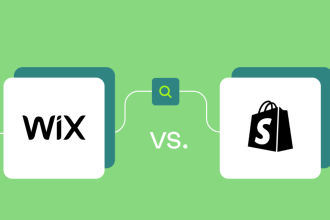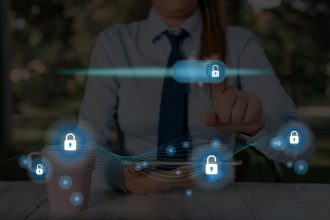In today’s digital age, our online privacy and security are more important than ever. Protecting your IP address is one of the most crucial aspects of online safety. Your IP address is like your online identity, which can reveal much personal information about you. Hackers and malicious entities can use your IP address to track your online activities, steal your data, and compromise your online security. In this article, we will explore why protecting your IP address is so important and provide tips on how to stay safe online.
What Is an IP Address?
An IP address is a unique identifier that connects every device to the internet. It’s similar to a street address, except it’s a digital address that allows your device to communicate with other devices online. Whenever you visit a website, your device sends a request to the website’s server, which then sends a response back to your device. This process requires your device to share its IP address with the website’s server.
How to Find My IP?
Finding your IP address is easy and can be done using a simple online search. Type “find my IP address” into your preferred search engine, and you will be presented with a list of websites that can display your current IP address. Alternatively, you can visit a website designed specifically for this purpose, such as https://www.whatismyip.com/. Knowing your IP address can be useful for various reasons, including troubleshooting internet connectivity issues, setting up a home network, or protecting your privacy by performing a WebRTC leak test.
Why Is Protecting Your IP Address Important?
Your IP address is your online identity. It can reveal your location, your internet service provider, and potentially even your browsing history. This information can be used to track your online activity and build a profile of your behavior.
There are several reasons why you might want to protect your IP address:
Privacy – Protecting your IP address is essential if you don’t want your online activity to be tracked. Without a protected IP address, websites and advertisers can track your online behavior and use that information to target you with ads or sell your data to third parties.
Security – An unprotected IP address can leave you vulnerable to cyber-attacks. Hackers can use your IP address to access your device or network, steal your personal information, or install malware.
Censorship – Some countries or organizations may block certain websites or content based on your location. You can bypass these restrictions using a protected IP address and access the content you want.
How To Protect Your IP Address
There are several ways to protect your IP address and stay safe online. Here are a few tips:
Use a VPN – A virtual private network (VPN) is essential for protecting your IP address. A VPN encrypts your internet connection and routes your traffic through a server in a different location, masking your IP address and providing an extra layer of security.
Use a Proxy Server
A proxy server acts as a middleman between your device and the internet. You can mask your IP address and protect your online privacy using a proxy server.
Disable WebRTC
WebRTC is a browser feature that can reveal your IP address even using a VPN. By disabling WebRTC, you can ensure that your IP address stays protected.
Use a Secure Browser.
Some browsers are more secure than others. Use a browser with built-in security features like ad-blocking, anti-tracking, and anti-malware.
Keep Your Software Up to Date.
Keeping your software up to date is essential for staying safe online. Software updates often include security patches that address vulnerabilities that hackers can exploit.
Prevent Identity Theft
An unprotected IP address can be used to steal your identity. Cybercriminals can use your IP address to access your device or network, steal your personal information, and use it for fraudulent activities.
Avoid Geo-restrictions
Many streaming services and websites have geo-restrictions preventing users from accessing content based on location. Using a VPN to mask your IP address, you can bypass these restrictions and access the content you want.
Protect Your Online Reputation.
Your IP address can also be used to track your online activity, impacting your online reputation. By protecting your IP address, you can ensure that your online activity remains private and secure.
Avoid Being Tracked by Advertisers
Advertisers often use your IP address to track your online activity and target you with ads. Protecting your IP address can prevent advertisers from tracking your online behavior and targeting you with unwanted ads.
Keep Your Personal Information Safe
An unprotected IP address can also leave your personal information vulnerable to cyber-attacks. By protecting your IP address, you can ensure that your personal information remains secure and out of the hands of cybercriminals.
Conclusion
Protecting your IP address is critical to staying safe online. By using a VPN, or proxy server, disabling WebRTC, using a secure browser, keeping your software up to date, and being aware of the potential risks associated with an unprotected IP address, you can protect your online privacy and security. It’s important to stay vigilant and take the necessary steps to safeguard your online activity and personal information.














